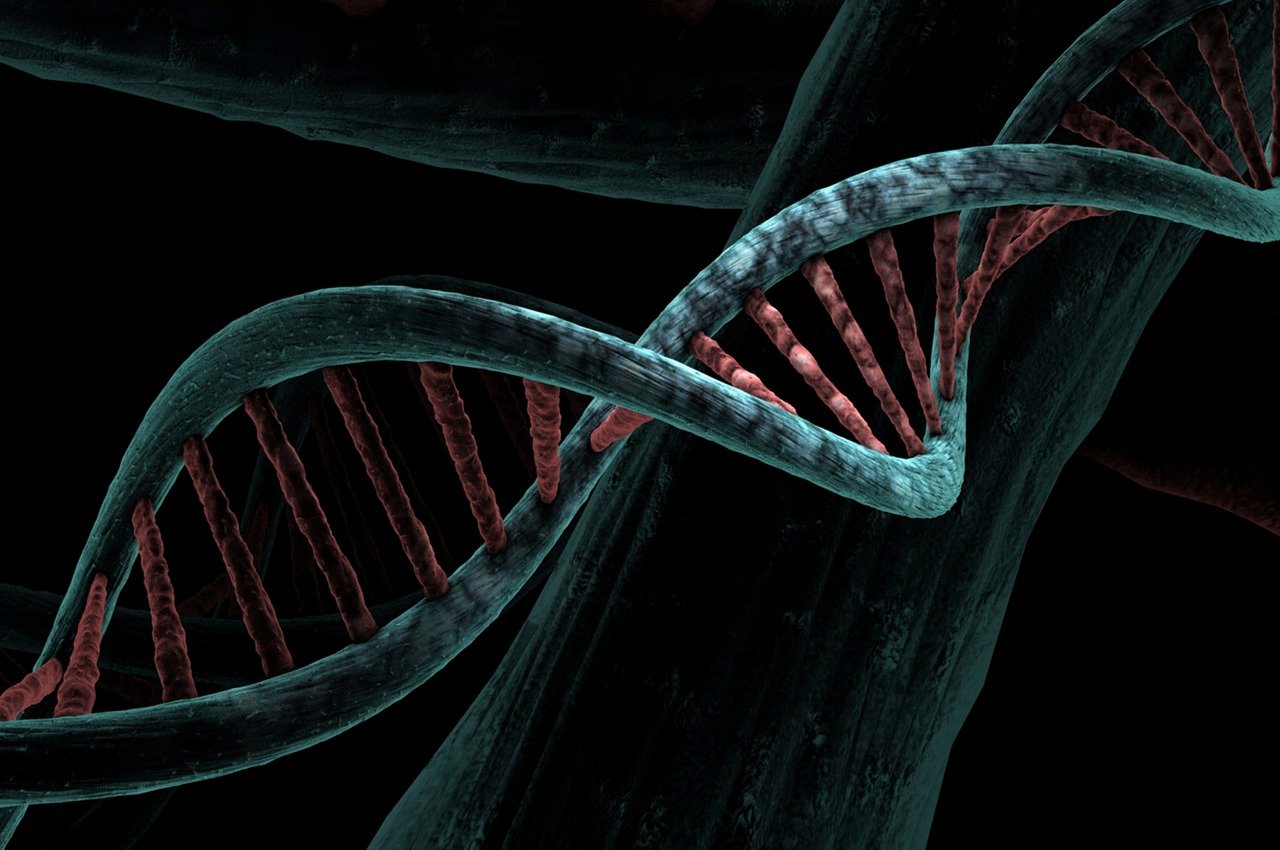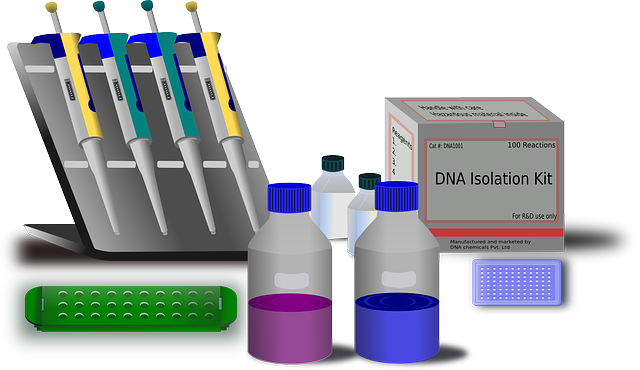
Our Top 10 Best DNA Testing Kits and Companies
DNA testing has revolutionized the way we understand our origins, with an estimated 60 million Americans expected to have participated in genetic ancestry testing by 2025. This surge in popularity has led to a diverse market of DNA kits, each with unique algorithms and databases. Choosing the right kit depends on your specific goals, whether it’s uncovering ancestry, finding relatives, or gaining health insights, all while ensuring your data remains private and secure.
Our Top 10 Best DNA Testing Kits and Companies:
Here’s a detailed look at the leading DNA testing kits in 2025, highlighting their strengths:

1. MyHeritage DNA – Best DNA Testing Kit Overall MyHeritage DNA excels at helping users build family trees and discover their genetic profiles. Their kit provides access to over 19.6 billion family history archives and offers a detailed breakdown of your ethnicity across 2,114 regions, identifying genetic groups your DNA stems from. It utilizes autosomal DNA information to help you find unknown relatives. A standout feature is its “chromosome browser,” allowing users to compare shared DNA segments with up to seven genetic matches simultaneously. The “Complete plan” includes over 10 genealogy research tools and a 30-day free trial. Results are delivered rapidly, in just 3-4 weeks. MyHeritage DNA allows for managing multiple accounts and importing DNA results from other companies for free, though its historical records are primarily outside Asia and Africa.
2. AncestryDNA – Best for Finding Genetic Relatives AncestryDNA is a powerhouse for genealogical research, offering robust family tree-building software, community features, and extensive health, ethnicity, and heritage databases. It leverages over 30 billion DNA samples in its genealogical records. Owned by Ancestry.com, one of the world’s largest genealogy sites, AncestryDNA seamlessly integrates results with its platform, making it ideal for in-depth family history exploration. Its “SideView technology” helps detect inherited DNA from each parent. Results typically arrive in 6 to 8 weeks. While excellent for ancestry, it may not be the best choice if your primary goal is detailed DNA health test results.
3. Living DNA – Best for Accuracy in Ancestral Research Living DNA offers an extensive database, particularly strong for those with ancestry from the British Isles, Europe, or Africa. It provides an exceptional level of detail for exploring geographic ethnicity. Led by UK-based experts, Living DNA is known for its well-detailed results and access to research resources. A unique offering is the ability to publish a personalized ancestry book featuring your story. Additionally, Living DNA can identify rare genetic predispositions and insights into genes that may help fight cancerous cells, like BRCA1, combining ancestry research with personalized medical insights. Results are available in 4-6 weeks.
4. LetsGetChecked – Best for Checking Health-Related Issues LetsGetChecked isn’t a traditional ancestry DNA test but focuses on health-related screenings, such as hormone imbalances, STDs, or kidney and liver health. It aims to provide accurate biological information about your wellness before a doctor’s visit, guiding better lifestyle choices. Results are delivered exceptionally fast, in 2 to 5 days. The company offers virtual one-on-one sessions for guidance and ensures 100% encryption and HIPAA compliance for your health data. While some tests require a blood sample, the accuracy is comparable to standard lab tests. It’s crucial to consult a healthcare provider for medical advice based on these results.
5. Futura Genetics – Best for Identifying Carrier Genes Futura Genetics offers advanced DNA profiling to identify carrier genes and assess genetic health risks for 28 common diseases. It focuses on improving overall health and extending longevity by providing an extensive 26-page health report, complete with personalized nutritional advice. While it uses a saliva sample, the analysis is thorough, and results are provided in approximately 4 weeks. Futura Genetics emphasizes a personalized, “human” approach, offering live genetic counseling sessions with a licensed physician both before and after testing.
6. GPS Origins – Best for Mapping Ancestral Migration Patterns GPS Origins, a subsidiary of HomeDNA, distinguishes itself with a focus on precision geographic mapping of ancestral roots. It boasts a wide range of geographic research results across over 900 regions, identifying precise ancestral locations, sometimes even down to the city level. Users can visualize their genealogical journey along an interactive map, tracing migration patterns across villages, cities, and countries. The test examines thousands of autosomal biomarkers and provides detailed gene pool profiles, offering a close-up view of your genetic makeup. Results are typically ready in 4 to 6 weeks.
7. HomeDNA – Best for Pet DNA Testing HomeDNA offers a wide variety of specialized DNA tests, including those for ancestral origins (through GPS Origins) and is particularly well-regarded for paternity testing. Uniquely, it extends its DNA testing services to pets. HomeDNA can identify sensitivities to certain foods, pet dander, and skincare products, and allows for importing and exporting reports from other genealogy websites. The kits are affordable and easy to use, providing detailed and specific results, including tracking DNA migration patterns. Results are available in 4 to 8 weeks.
8. Vitagene – Best for Wellness-Focused Testing Products Vitagene prioritizes wellness-focused testing, providing personalized health tips based on your genetic makeup. While it offers ancestry services, its strength lies in genetic health tests covering diet, supplementation, fitness, and skin reports. It also offers tests for genetic risks, specific skin conditions, endurance abilities, and nutritional deficiencies. Vitagene provides several detailed health reports not commonly found in competitor kits, including inflammatory testing, sleep and stress tests, and thyroid tests. Results are typically ready in 3 to 8 weeks.
9. EasyDNA – Best for Testing Non-Standard Samples EasyDNA offers a wide range of DNA tests and is notable for its ability to process non-standard samples, including hair and even cremated remains to confirm DNA presence from a departed relative. Its diverse test types include prenatal and paternity testing, relationship tests, drug tests, and clinical testing. EasyDNA provides accurate and fast results, with many available in just 1 to 6 weeks. Operating in 25 countries with multilingual customer service, it stands out for its broad service offerings and efficient support.
10. Nebula Genomics – Best for Complete Genomic Sequencing Nebula Genomics offers advanced genetic sequencing solutions, including full genomic sequencing starting at $299. It provides three DNA testing packages and DNA analysis tools. Nebula Genomics places a strong emphasis on privacy and data security. While there’s an additional subscription for its “Nebula Explore” DNA analysis tools, users get free access to their raw DNA data. Sample collection is straightforward, with results available in 8-10 weeks. It’s important to register your kit to receive result notifications.
How to Compare the Best DNA Testing Kits
Before choosing a DNA test kit, consider your specific needs, goals, interests, and budget. Here are the key criteria to evaluate:
- Price: Look at the overall cost, including the kit, processing, shipping, and any potential subscription plans or renewals.
- Resources (Database Size): The accuracy of ancestry research largely depends on the company’s database size. Companies with millions or billions of records offer more comprehensive and accurate results for finding relatives and pinpointing ethnic origins.
- Privacy and Security: This is a crucial consideration. Ensure the company has robust protocols to protect your sensitive genetic information from unauthorized release or commercialization. Read their privacy policies carefully to understand how your data will be collected, stored, and used, and if it can be accessed by third parties or law enforcement. Remember that sharing your DNA also implicitly shares your family’s genetic data.
- Speed of Results: Turnaround times can vary significantly, from a few days to several weeks. If you need results quickly, prioritize companies known for fast delivery.
- Specialization: Determine if your primary interest is ancestry (family tree building, ethnic origins, migration patterns) or health-related (genetic risks, carrier genes, wellness insights). Some kits offer a comprehensive approach, while others specialize.
- Collection Method: Most kits use a simple cheek swab or saliva sample. Some health tests might require a blood sample collected via a finger prick. EasyDNA also notably accepts hair samples or even cremated remains for specific tests.
- Key Features: Look for specific features that align with your goals, such as chromosome browsers, side-view technology, detailed sub-regional analysis, interactive migration maps, wellness reports, or specific medical screenings.
- Accuracy and Reporting Detail: Consider the level of detail provided in the reports and the scientific backing for health insights. Keep in mind that most DNA test kits measure genetic risk or ancestral roots and should not be used as a substitute for valid medical diagnoses.
What are DNA Tests?
DNA tests, also known as genetic tests, are medical analyses that examine variations or mutations in your genetic sequence. By analyzing samples of blood, saliva, or hair, these tests identify changes in your genes, proteins, or chromosomes. This information can then be used to:
- Map out your family history and ancestry: Determining ethnic background, ancestral migration patterns, and identifying genetic relatives.
- Assess the likelihood of inheriting a genetic condition: Identifying specific gene mutations linked to hereditary diseases.
- Estimate your chances of developing a disease: Providing insights into predispositions for certain health conditions.
While doctors may request genetic tests for medical reasons, many individuals now purchase at-home DNA kits driven by curiosity and a desire for self-knowledge.
Privacy Considerations with DNA Test Kits
As DNA testing gains popularity, concerns about privacy and data security are paramount. Key worries include:
- Unauthorized data release: The potential for sensitive genetic information to be shared with third parties without your explicit permission.
- Commercialization of personal data: Companies potentially using genetic data for research, product development, or marketing without proper authorization or consent.
- Insurance implications: Some insurance companies might use this data to determine eligibility or set premiums, although regulations like the Genetic Information Nondiscrimination Act (GINA) in the U.S. offer some protection against discrimination in health insurance and employment.
- Law enforcement access: Genetic information can potentially be accessed by law enforcement agencies, raising questions about individual rights and surveillance.
Before submitting your DNA sample, it is crucial to familiarize yourself with the privacy policies and potential risks involved. Most providers publish their policies online or with product packaging; reading these terms and conditions carefully is essential. Remember that when you share your genetic code, you are also implicitly sharing data that has implications for your relatives due to shared genetic sequences.
How Does DNA Testing Work?
The process of DNA testing generally involves these steps:
- Sample Collection: A DNA sample is collected, most commonly through a cheek swab for saliva, but some kits may require a blood sample (finger prick) or even hair.
- Laboratory Analysis: The collected sample is sent to a laboratory.
- DNA Amplification: Laboratory technicians make multiple copies of the DNA through a process called amplification to ensure sufficient material for analysis.
- Genetic Marker Identification: The amplified DNA undergoes analysis using techniques like sequencing to identify specific genetic markers.
- Result Generation: The findings from this analysis form the basis of the DNA testing kit’s final results report.
Using the DNA Testing Kit: Step-by-Step Guide

Using a DNA kit is designed to be a simple and convenient process:
- Read Instructions: Reputable DNA testing companies provide clear, step-by-step instructions with their kits to guide you through the collection process and ensure accuracy.
- Collect Sample: Most kits require a saliva sample collected via a cheek swab. Instructions will specify the required amount of saliva. If a blood sample is needed, you’ll typically use a lancet to prick your finger and collect blood in a supplied tube.
- Register Kit: You’ll need to register your kit online using a unique barcode that matches your specific sample. This links your sample to your account for result delivery.
- Prepare for Shipping: The kit usually includes detailed instructions for finalizing your sample, along with return shipping packaging and information on costs and expected turnaround times for results.
Different Types of DNA Tests
As genetic testing technology evolves, so does the versatility of DNA tests. They are classified into several types based on the specific information they reveal:
- Family Tree Builders & Genealogy Tests: These tests use DNA-based genetic markers to determine your ancestry, providing insights into where your ancestors came from, their migration patterns, and their ethnicity. Many also offer tools to create visual family trees, allowing you to organize and explore your findings.
- Sibling DNA Test Kits: These are particularly useful for confirming genetic bonds between siblings or for reliable parentage testing if one or both parents are unavailable or deceased. They can also establish legal relationships for inheritance or immigration purposes.
- Paternity Tests: Commonly used to compare a child’s DNA with a potential father’s to confirm biological parentage. These tests are often used to establish legal parentage for child custody or support arrangements.
- Ancestry Tests (Genetic Genealogy): These tests focus on determining your ethnic background and family history by analyzing your DNA. They can provide broad continental breakdowns or highly specific regional origins depending on the company’s database.




